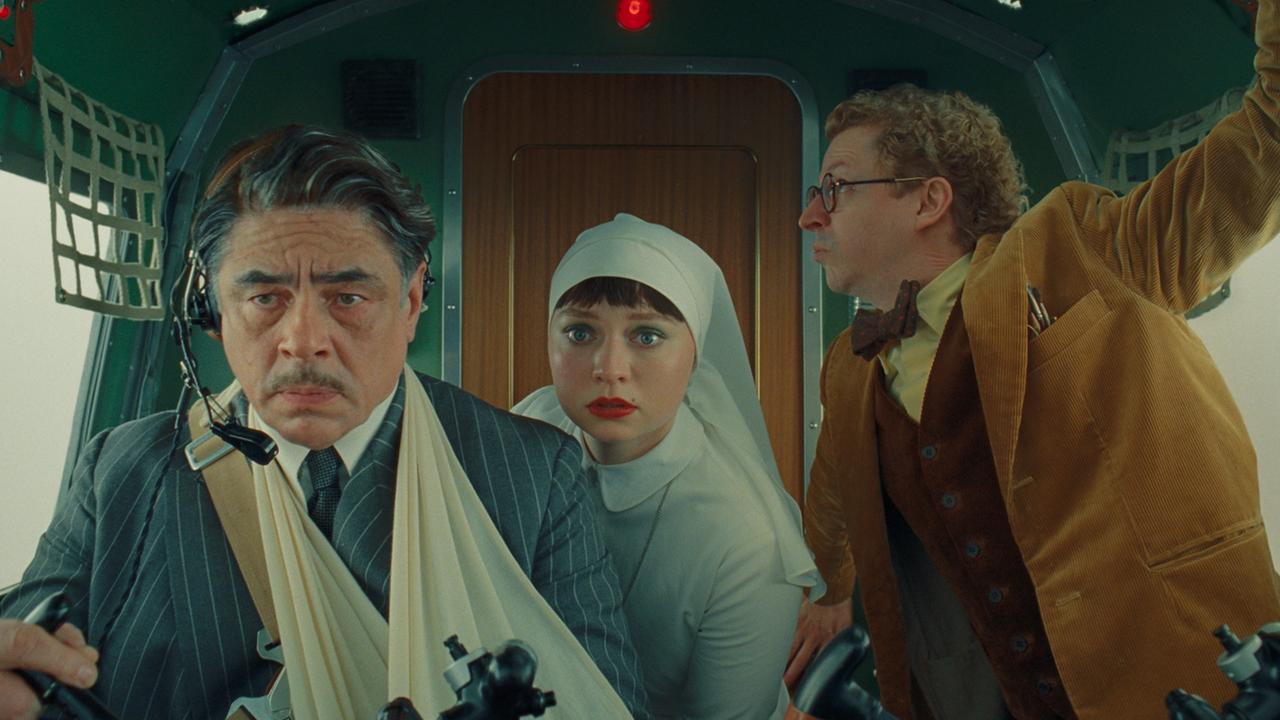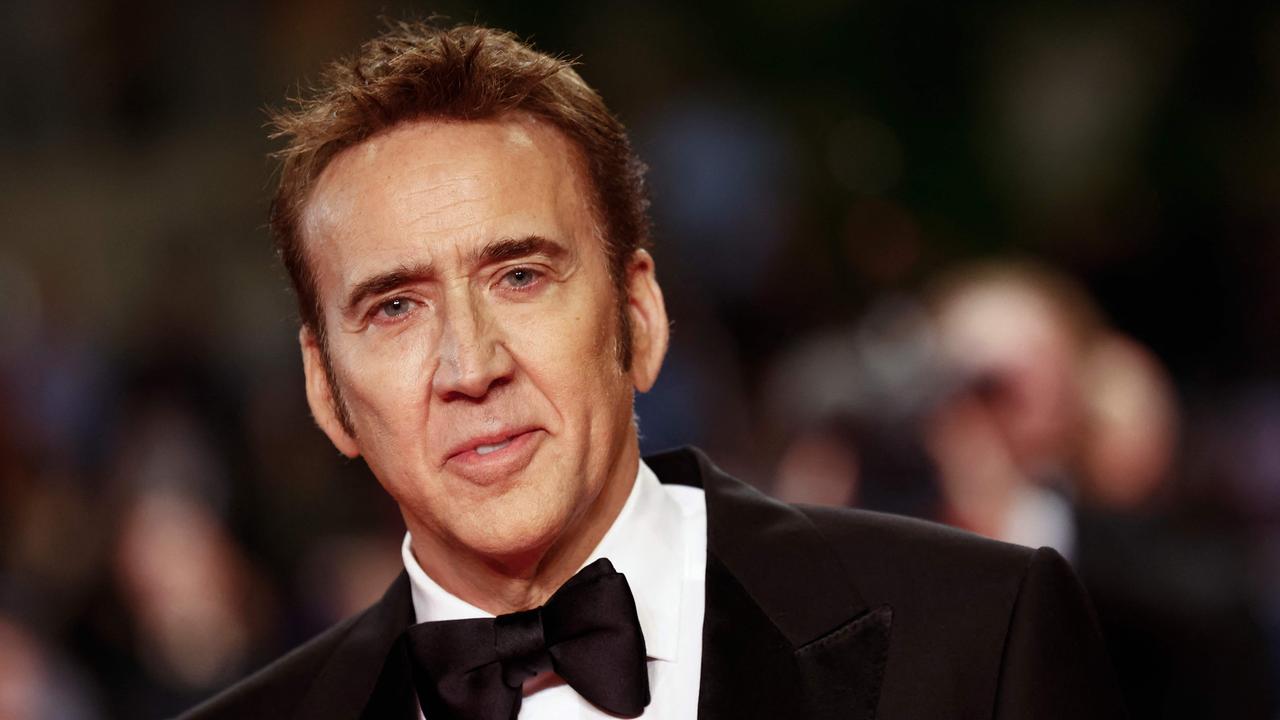Rebecca (2020) movie review: Lily James adaptation loses story’s magnetism
A gutsy adaptation of a classic story has a great cast and handsome visuals. But it didn’t get some crucial things right.

Few filmmakers would’ve taken on the challenge of adapting Rebecca, a haunted, gothic love story.
It’s not just that Daphne du Maurier’s novel is revered (and it is), but it’s that two years after the book’s 1938 release, Alfred Hitchcock made it for cinemas with Laurence Olivier and Joan Fontaine in the leads.
Hitchcock’s Rebecca won the 1940 Best Picture Oscar while Olivier and Fontaine were nominated for their roles – the screen legends didn’t win but would go on to collect Oscars down the track for other performances. Rebecca continues to be regarded as a masterful psychological thriller.
So, the person who decides to remake it with that kind of legacy hanging around their neck is either gutsy or foolish – of course, those two concepts are not mutually exclusive. English director Ben Wheatley decided he was that person.
Releasing on Netflix this week, Wheatley’s Rebecca is a stylish but flawed attempt at capturing the emotional and psychological nuance of du Maurier’s book. The earlier acts are effective and evocative but by the final stretch, the film loses its magnetism and it becomes one of the soapier episodes of Downton Abbey.
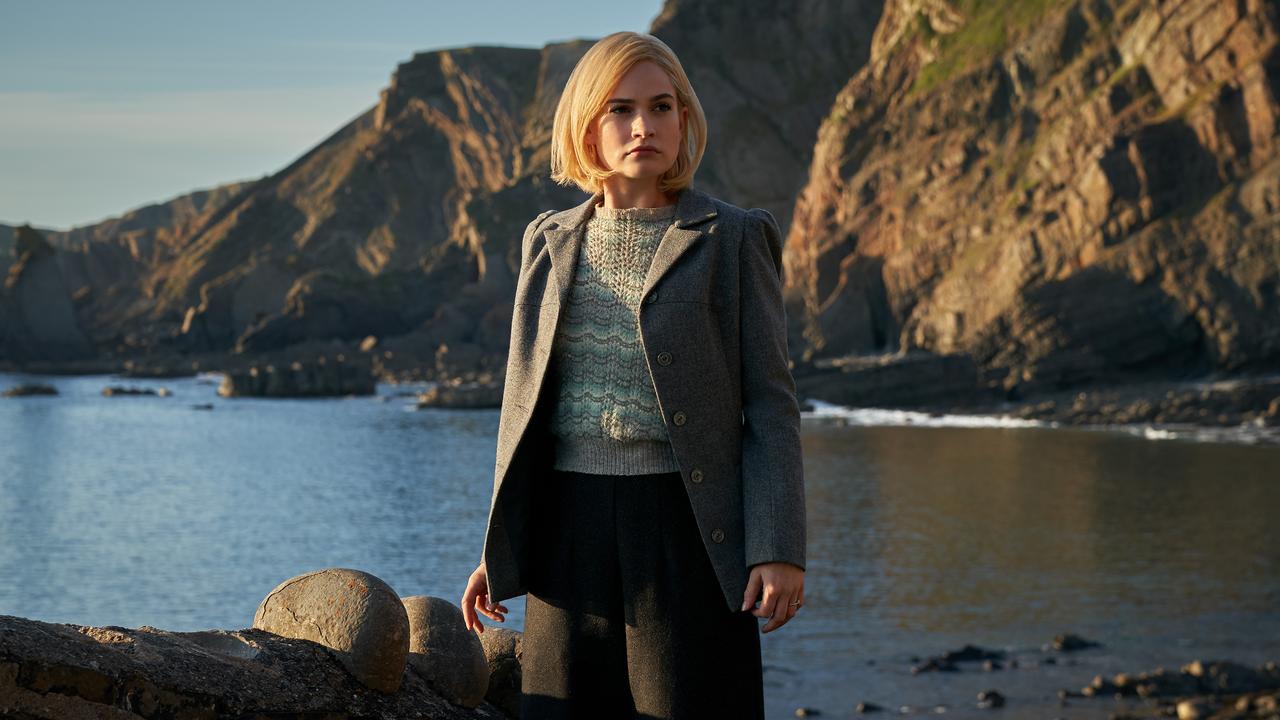
The 2020 Rebecca is a more faithful adaptation, restoring a story point that Hitchcock changed due to the moralistic guidelines of Hollywood’s Hays Code, while downplaying the 1930s slut-shaming.
Lily James plays the unnamed lead character, a lady’s companion to the garish Mrs Van Hopper (Ann Dowd), who catches the eye of the recently widowed Maxim de Winter (Armie Hammer).
A courtship begins in the beautiful climes of Monte Carlo, two sun-kissed humans making sexy googly-eyes while hugging the Mediterranean coastline. Before the week is out, Maxim has proposed, and she becomes Mrs de Winter.
Once they arrive at his ancestral home, the gothic manor Manderley on the wild Cornish coast, the honeymoon is over. Everywhere she turns, there are reminders of the late Mrs de Winter, the titular Rebecca, a woman who clearly loved a monogram or 76.
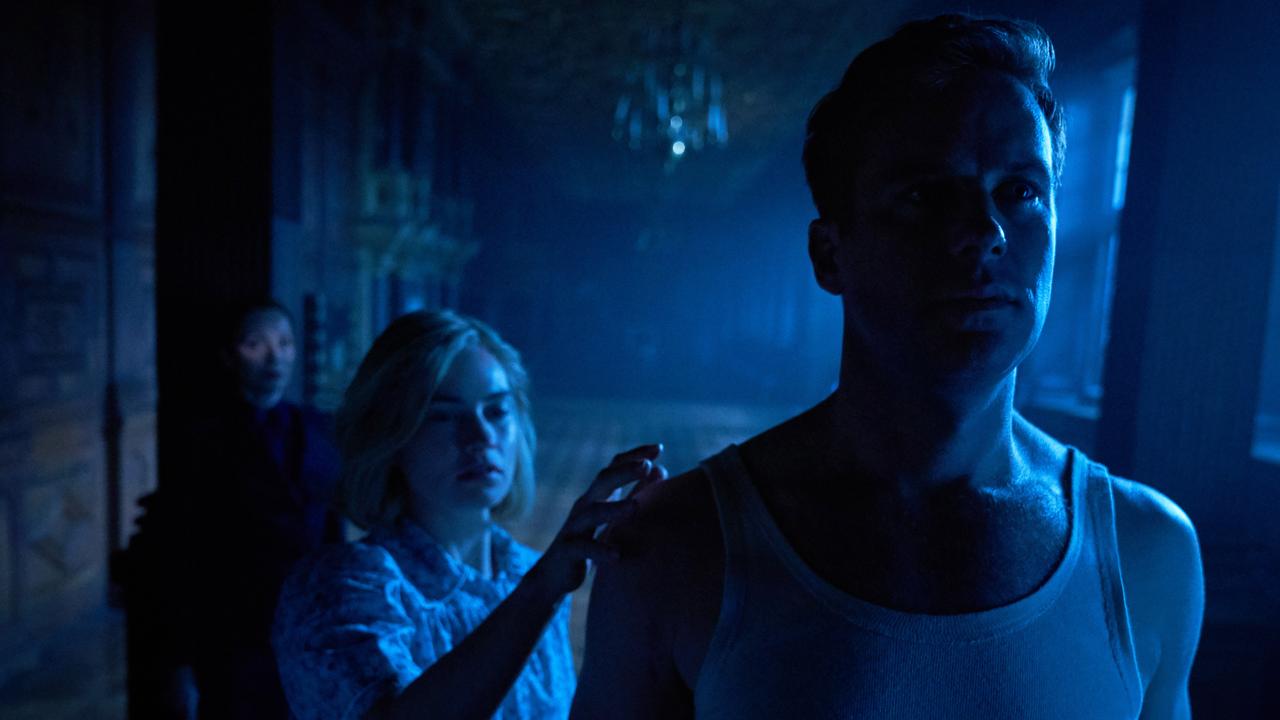
Imposing housekeeper Mrs Danvers (Kristin Scott Thomas) runs the house and she takes every opportunity to remind Mrs de Winter how Rebecca would’ve done things. The younger woman feels herself deteriorating under the weight of Rebecca’s memory.
Maxim disappears into his work, an infrequent presence in her life and in the film over the next hour, and mostly placid when he does appear.
While this choice was likely to reflect Mrs de Winter’s mental state, increasingly isolated and paranoid without the man she married, Hammer vanishing from the film for long stretches of time works against Rebecca’s final act in which audiences are asked to be on his side.
Hammer is miscast for the role, bringing to it a more serious countenance than Olivier’s charismatic Maxim and closer to Jane Eyre’s Mr Rochester. It’s easy to forget the seductive, sexual charmer of those Monte Carlo scenes.
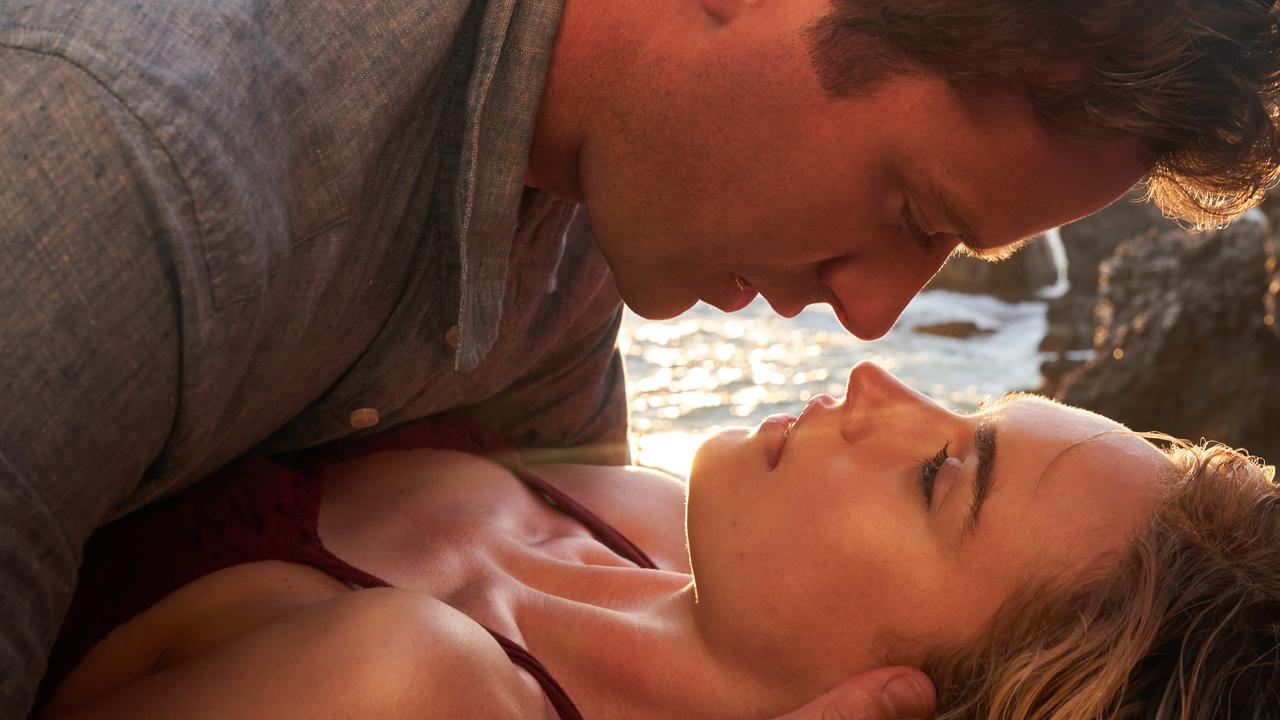
RELATED: What to stream this week
There’s also not enough of an age gap between Hammer and James (only three years as opposed to the book’s 20-plus and Olivier and Fontaine’s 10) for the complex dynamic of that uneven relationship.
Rebecca never succeeds in making the argument that we should forgive Maxim after the story’s climactic revelation – and it certainly doesn’t establish why Mrs de Winter would.
Which possibly makes the sinister Mrs Danvers the real hero of the story?
Scott Thomas does a brilliant job in a role that was played with memorable stoicism by Australian actor Judith Anderson in the Hitchcock version. With Scott Thomas’ subtle gaze, she’s equal parts malice and hurt, her ill-intent driven by obsession but also pain.
You can easily imagine another, more successful movie told from Mrs Danvers’ perspective.
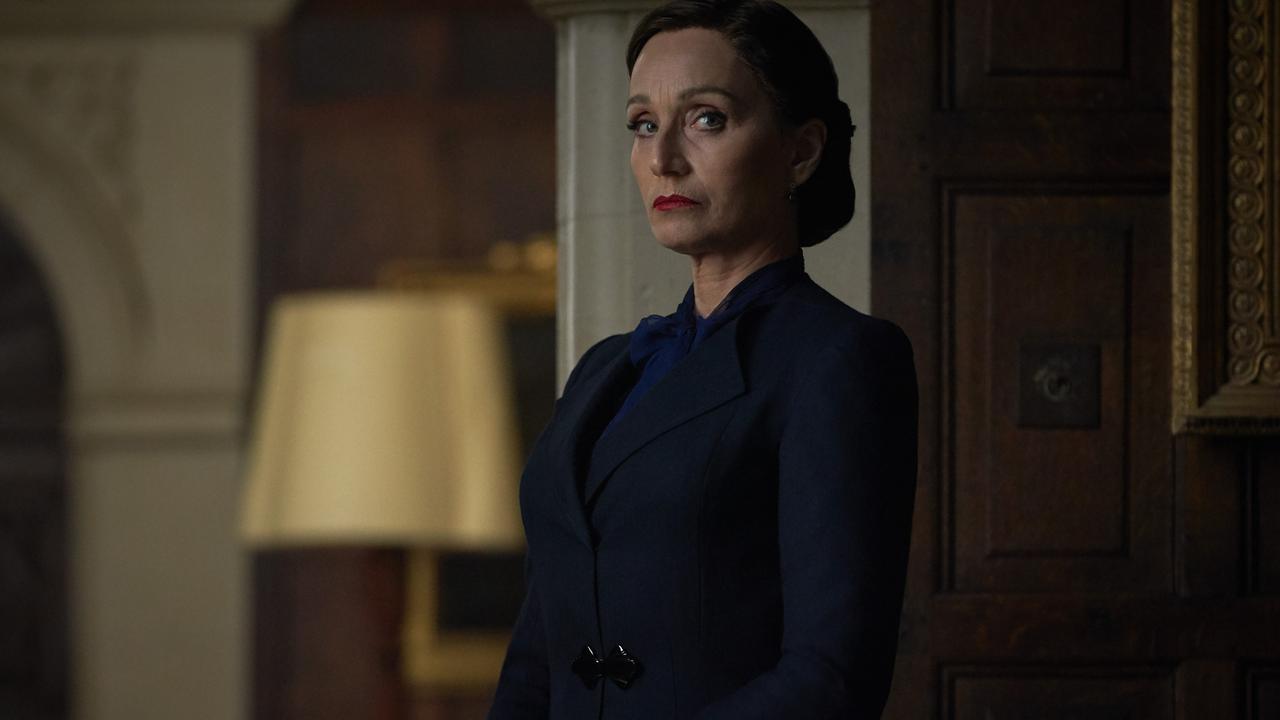
RELATED: The Trial of the Chicago 7 is compelling cinema
Wheatley is a director that has genre-hopped from horror to action to sci-fi to dry comedies. Rebecca is his first psychological thriller and it’s also unusual for Wheatley in that his previous work – including High-Rise, Free Fire and Happy New Year, Colin Burstead – all tend to have a comedic streak underpinning them.
Sometimes it feels as if Rebecca, with all of its gothic melodrama, wants to be camp, but feels constrained by the reverence for the source material.
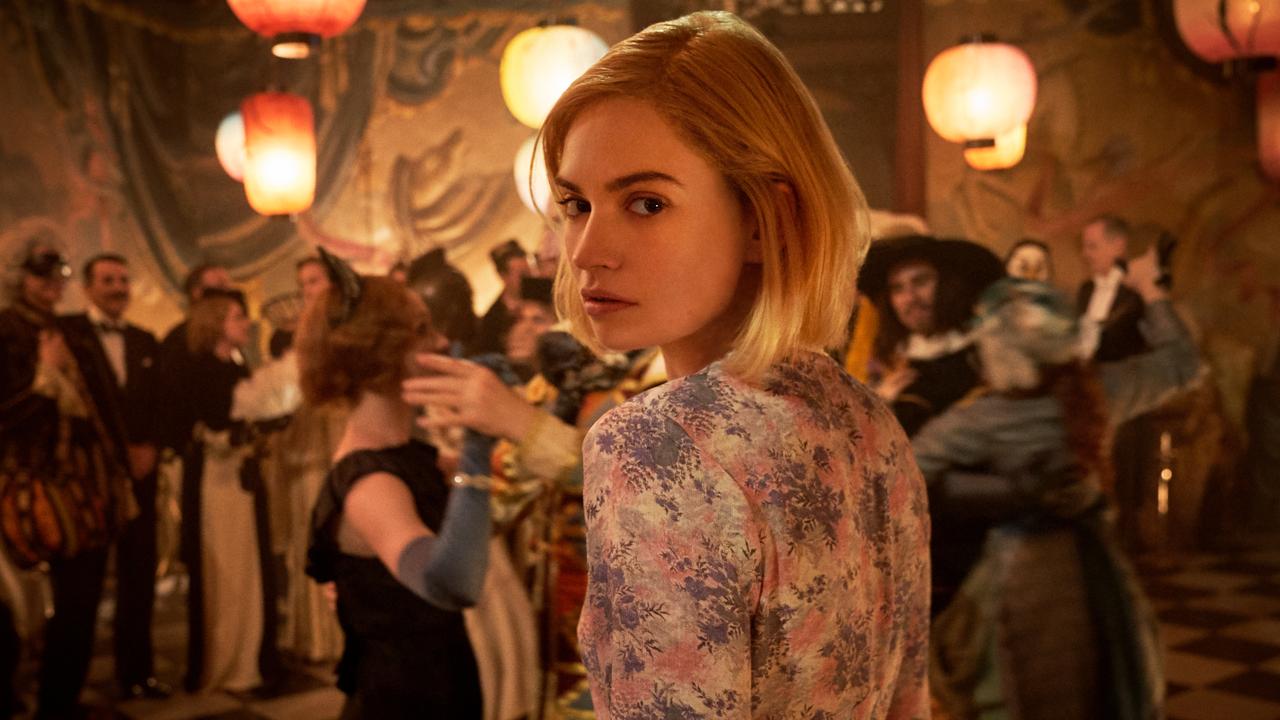
Along with cinematographer Laurie Rose, Rebecca is certainly a visually handsome movie, deploying that dramatic English coastline to great effect while swinging between Hitchcockian wide shots and striking close-ups with slashes of light across James’ high-cheekboned face.
But there are many non-negotiables it doesn’t hit. Manderley (with interiors filmed at the oft-used Hatfield House) never really becomes its own character, never builds an atmosphere of claustrophobia despite its volume.
Mostly importantly, Rebecca doesn’t convince us that its denouement and the fate of its characters are something worth fighting for.
Rating: 2.5/5
Rebecca starts streaming on Netflix on Wednesday, October 21 and is also playing in selected cinemas (excluding Victoria)
Share your movies and TV obsessions | @wenleima



